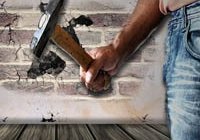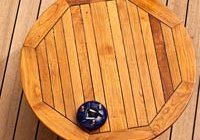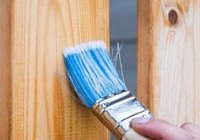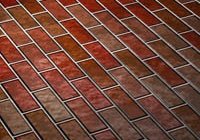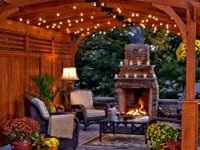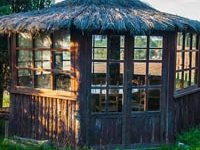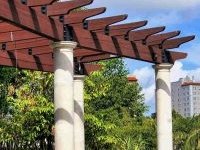-
Choosing the Best Material for Your Decking Project: A Comprehensive Guide - June 16, 2024
-
Sustainable Decking Solutions: A Comprehensive Guide to Eco-Friendly Materials - June 16, 2024
-
Avoiding Remodeling Nightmares: A Comprehensive Guide to Selecting a Reliable Contractor - June 10, 2024
-
9 Steps to Plan Out Your Home Improvement Projects - June 9, 2024
-
Low-Maintenance Deck Design: Enjoy Your Outdoor Space with Minimal Upkeep - June 9, 2024
-
Transform Your Home Like a Pro Even if You’re Clueless - June 8, 2024
-
Step-by-Step DIY Deck Building: Tips, Tricks, and Essential Considerations - June 8, 2024
-
Transform Your Bathroom: Essential Tips for a Successful Remodel - May 28, 2024
-
Unraveling the Mystery: Your Guide to Taking On a Roofing Project Like a Pro - May 27, 2024
-
13 Creative Ways To Give Your Floors A New Look - May 21, 2024
Adding Beauty to Your Garden With an Arbor
Garden arbors are set up as shaded places in home gardens or public parks where one can relax and rest. These open frameworks are typically made of latticework or rustic work, functioning also as a trellis for climbing or creeping plants. Arbors can also be constructed for decks or patios. Today’s garden arbors were not the first attempt to enhance the beauty of gardens. In the 400s B.C. and A.D. 400’s, elaborate courtyards were a hallmark of many Roman homes. Landscape architecture was also given a premium in Japanese gardens (A.D. 500’s) and Persian gardens (A.D.200’s-600’s).
Beauty was also a priority for civic plazas and hillside estates for Italians in the 1400’s-1500’s. City gardens and majestic palaces were the highlight of France during the 1600’s and 1700’s, while country estates with a natural look were the main theme followed by English designers in the 1800’s.
1. Landscape Architecture
For a good number of these early country estates and gardens, designers were known as landscape gardeners. An American – Frederick Law Olmsted – was the first to use ‘landscape architect’. He indicated this title when he approved design plans for Manhattan’s Central Park in New York City with Calvert Vaux as his partner in the 1850’s.
Landsape architecture is not limited to major projects. Some homeowners tap the services of professionals to add beauty to their gardens. However, others now feel confident in do-it-yourself projects as a cost-effective alternative to make their gardens beautiful.
2. Use Quality Materials
Creating a small garden arbor is an easy task, with costs becoming significantly less if the homeowner is patient enough to shop around and compare prices, particularly for pressure-treated lumber.
Other items that may vary slightly across discount stores in price terms are deck screws, scrap lumber, crushed stone or gravel, washers, bolts and nuts. The same principles apply to building larger arbors, although some ideas and items would tend to increase in scale.
As an example, using two posts for a small arbor may mean using four posts for a large one, as a bigger arbor would need greater support for strength and stability, and also to enhance alignment.
3. Designing a Garden Arbor: Some Do-It-Yourself Fundamentals
- To stabilize the arbor, the homeowner should have the main posts of the structure sunk into concrete poured into holes below the garden’s ground level.
- The carpenter’s level is used to determine if the posts stand at equal heights. The tool is also used to establish plumbness, or if the posts are vertically ‘level.’
- Wooden crosspieces in varying measurements can be attached perpendicular to the posts for further support.
- Since some rejects still make their way to lumber stores, one should be patient enough to sort through many boards until a good quality board is found.
- Buyers should remember that conventional measurements are not exact: a 4 by 4 may actually measure 3.5 by 3.5, while 2 by 4 may measure 1.5 by 3.5.
- The same consideration for post height must also be given, as part of the arbor posts will be underground. Galvanized post anchors is one option homeowners have if they intends to make use of the post’s full height – or have all posts above ground level – for their garden.
4. Tools For Do-It-Yourself Projects
These will actually cost a lot more if one does not have the necessary tools at home for building garden arbors.
- Circular saw or handsaw
- Stepladder
- Wheelbarrow
- Hammer
- Wrench
- Spade bit
- Garden hose
- Carpenter’s level
- Shovel
- Drill
- File
- Wood chisel
5. Building Tips
- Arbor boards can already be pre-drilled and pre-cut as a time-saving step.
- The wooden crosspieces can be designed at the ends. Patterns can be drawn using a pencil and later cut using a jigsaw.




